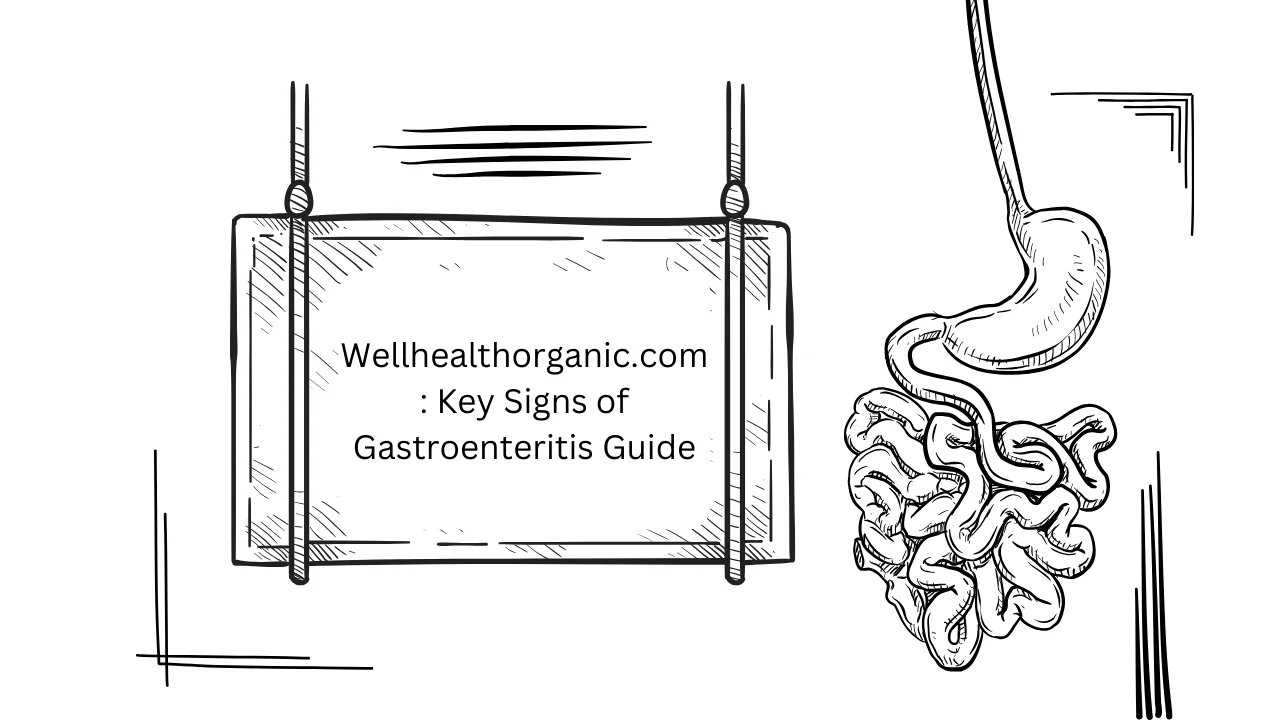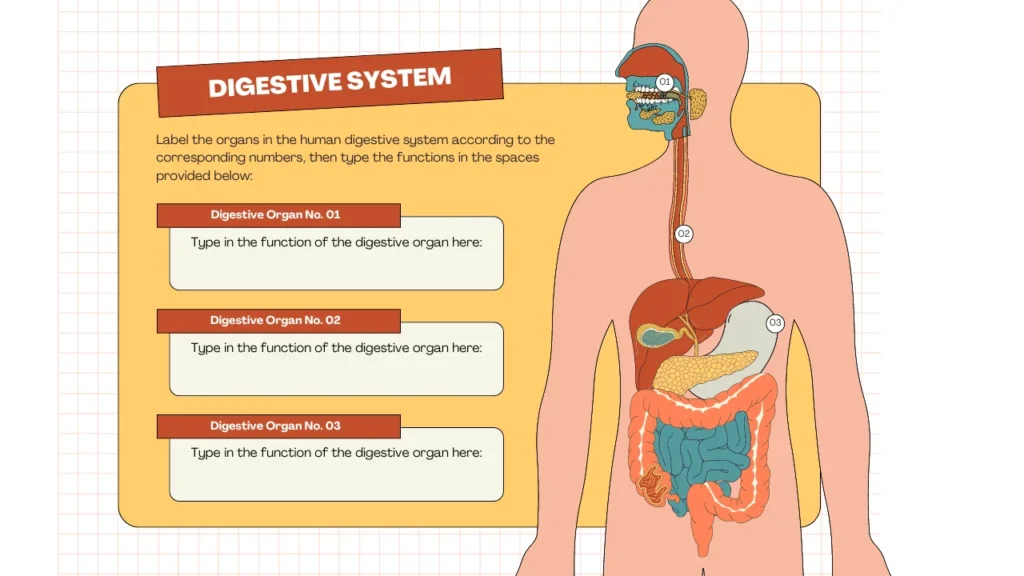Wellhealthorganic.com : Key Signs of Gastroenteritis Guide

Gastroenteritis, often known as stomach flu, is an intestinal infection marked by symptoms such as diarrhea, abdominal cramps, nausea, and vomiting. It can affect people of all ages and is particularly common in children and the elderly. In this article, we’ll explore the WellHealthOrganic.com : Key Signs of Gastroenteritis as highlighted by WellHealthOrganic.com, providing essential information for recognizing and understanding this uncomfortable condition.
What is Gastroenteritis?
Gastroenteritis is an inflammation of the lining of the intestines caused by a virus, bacteria, or parasites. Viral gastroenteritis is the most common type, often caused by norovirus or rotavirus. This condition is highly contagious and can spread through contaminated food or water, or contact with an infected person.
Recognizing the Signs
wellhealthorganic.com : key signs of gastroenteritis include several symptoms that vary in severity. Here, we discuss these signs to help you identify this ailment:
1. Diarrhea
One of the most prominent key signs of gastroenteritis is diarrhea. This condition is marked by frequent, loose, or watery bowel movements. Diarrhea can range from mild to severe and, in some cases, may lead to dehydration if left untreated. The body loses essential fluids, and it is vital to stay hydrated during this period.
2. Nausea and Vomiting
Nausea, often accompanied by vomiting, is another wellhealthorganic.com : key signs of gastroenteritis. Individuals infected with gastroenteritis typically experience an overwhelming urge to vomit, which can further lead to dehydration. While vomiting helps the body rid itself of harmful substances, it also depletes fluids and electrolytes, causing further health risks.
3. Abdominal Pain and Cramps
People with gastroenteritis often report intense abdominal pain and cramping. These symptoms occur due to inflammation of the gastrointestinal tract. The pain is usually localized in the lower abdomen and can be sharp or persistent. Recognizing abdominal pain as one of the key signs of gastroenteritis is crucial for early diagnosis.
4. Fever
Fever is another indicator and a significant key sign of gastroenteritis. The body’s temperature rises as it tries to fight off infections caused by bacteria or viruses. A mild fever can be expected, but if it becomes severe or persists for an extended period, it is essential to seek medical attention immediately.
5. Fatigue
Due to dehydration and the body’s attempt to fight off infection, fatigue is one of the common WellHealthOrganic.com : Key Signs of Gastroenteritis. The constant loss of fluids and essential nutrients from the body leaves a person feeling drained. Rest is essential during this time, allowing the body to recover and regain energy.
6. Dehydration
Dehydration is not just a symptom but a severe complication of gastroenteritis. It occurs when the body loses more fluids than it takes in. If not treated, dehydration can lead to dizziness, dry mouth, rapid heart rate, and even fainting. Dehydration is a key sign that the condition has escalated, requiring immediate intervention.
| Symptom | Description | Common Causes |
|---|---|---|
| Diarrhea | Frequent, loose, watery stools; may be bloody | Viruses, bacteria, parasites |
| Vomiting | Expulsion of stomach contents; can lead to dehydration | Viruses, bacteria |
| Abdominal Cramps | Pain and discomfort in the stomach area | Viruses, bacteria, parasites |
| Fever | Elevated body temperature | Viruses, bacteria |
| Muscle Aches | General body aches | Viruses |
| Headache | Pain in the head, often caused by dehydration | Dehydration associated with illness |
Impact on Different Age Groups
The impact of gastroenteritis can vary depending on the age of the affected individual:
- Children and Infants: They are at a higher risk of severe dehydration. Parents should watch for signs such as dry mouth, crying without tears, and unusual sleepiness or fussiness.
- Adults: While adults may cope better, they still face risks, especially with severe dehydration. Symptoms like decreased urination, dizziness, and extreme thirst indicate dehydration.
- Elderly: Older adults must manage gastroenteritis carefully due to the potential for exacerbated symptoms and complications.

Treatment and Management
WellHealthOrganic.com : Key Signs of Gastroenteritis also includes advice on managing the symptoms. The primary treatment focuses on staying hydrated. Oral rehydration solutions (ORS) are recommended, especially for young children and the elderly. Over-the-counter medications may help alleviate pain and nausea, but it’s crucial to use these under guidance to avoid worsening symptoms.
Also Read: Best Wellhealthorganic Home Remedies Tag and Recipe
Preventing Gastroenteritis
Preventive measures are critical in avoiding gastroenteritis. Good hygiene practices, such as washing your hands regularly and ensuring that your food is prepared in a clean environment, go a long way in preventing the spread of this illness. Avoid consuming undercooked or raw foods and ensure that water sources are clean before drinking.
Vaccination against rotavirus, especially for children, is another preventive measure worth considering. In regions with poor sanitation, individuals should be cautious about the water they consume, opting for bottled or boiled water when necessary.
Prevention is a crucial component in managing the spread of gastroenteritis. Here are some tips inspired by WellHealthOrganic.com:
- Wash Hands Regularly: Proper handwashing with soap and water can significantly reduce the risk of spreading the virus.
- Handle and Prepare Food Safely: Avoid cross-contamination by using different utensils for cooked and raw foods.
- Clean and Disinfect Surfaces: Especially in the kitchen and bathroom, regular cleaning can prevent the spread of germs.
Also Read: Wellhealth How to Build Muscle Tag Steps Guide
Causes of Gastroenteritis
Gastroenteritis, commonly known as the stomach flu, can be caused by a variety of infectious agents, including viruses, bacteria, and parasites. Each type of pathogen can trigger gastroenteritis through different mechanisms and sources of contamination. Here’s a detailed look at the main causes:
Viruses
Viruses are the most common cause of gastroenteritis. The major viral agents include:
- Norovirus: Highly contagious and often responsible for outbreaks in close quarters such as cruise ships, nursing homes, and schools.
- Rotavirus: Most common in children, and a leading cause of severe diarrhea among young children worldwide. Vaccination can prevent this infection.
- Adenovirus and Astrovirus: More commonly affect children, but can infect adults as well.
Bacteria
Bacterial gastroenteritis is often the result of consuming contaminated food or water. Common bacterial causes include:
- Salmonella: Often found in raw poultry, eggs, beef, and sometimes on fruits and vegetables.
- Escherichia coli (E. coli): Certain strains such as E. coli O157can cause severe diarrhea and abdominal cramps.
- Campylobacter: Associated with raw milk, raw or undercooked poultry, and contaminated water.
- Shigella: Typically spread through direct contact with the bacteria in feces. It’s a common cause of outbreaks in child care settings and other environments of close contact.
- Clostridium difficile (C. diff): Often associated with recent antibiotic use, affecting the balance of gut bacteria.
Parasites
Parasitic infections leading to gastroenteritis can be spread through contaminated water or food and are more common in developing countries. Key parasites include:
- Giardia lamblia: Often found in lakes and rivers, especially where there is animal and human fecal contamination. It can survive in cold water for several months.
- Cryptosporidium: Another parasite that can be found in water supplies and can resist chlorine disinfection.
Other Causes
While infectious agents are the primary culprits, non-infectious causes can also lead to symptoms similar to gastroenteritis, such as:
- Toxins: Some bacterial infections result from toxins produced by the bacteria in foods (as in some types of staphylococcal or Bacillus cereus food poisoning).
- Chemicals: Contamination of food by harmful chemicals can also cause symptoms that mimic gastroenteritis.
Also Read: The Power of Wellhealth Ayurvedic Health Tips
When to See a Doctor
It’s important to consult a healthcare provider if symptoms persist for more than a few days or if dehydration signs appear severe. WellHealthOrganic.com : Key Signs of Gastroenteritis emphasizes not to delay seeking medical help when:
- Diarrhea lasts more than two days
- Severe pain in the abdomen or rectum
- High fever over 102°F
- Signs of dehydration, like dry mouth, dizziness, or lightheadedness
Conclusion
Recognizing the key signs of gastroenteritis is essential for timely and effective management of the condition. By understanding what to look for and how to respond, individuals can minimize the impact of gastroenteritis on their health. For more detailed guidance, visit WellHealthOrganic.com : Key Signs of Gastroenteritis to ensure you are prepared to handle this common but disruptive condition.
In conclusion, while gastroenteritis is often manageable at home, awareness and proper care are crucial for recovery and preventing the spread of infection. Always prioritize hydration and consult a healthcare provider if symptoms escalate.
Also Read: Wellhealthorganic.com Vegetarian Protein Sources Comprehensive Guide






